What killed Lieutenant Colonel Ivanov? As in the revolutionary Rostov dealt with the head of the gendarmes
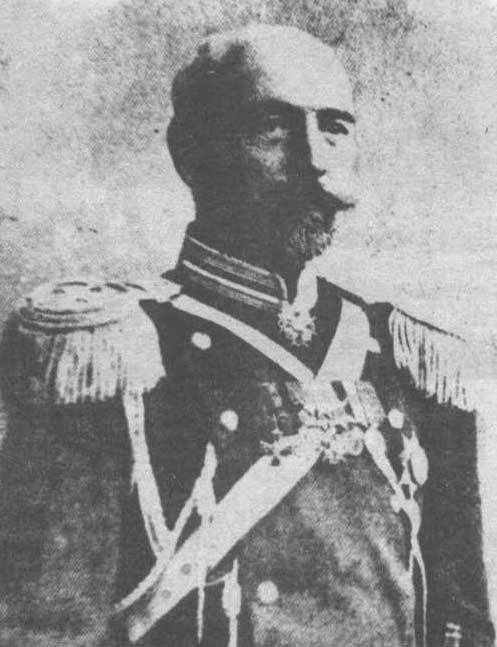
Soon the whole of Rostov already knew - at the entrance of his own house in Bratsky Lane, Lieutenant Colonel Ilya Vasilyevich Ivanov (1848-1905) —the head of the Rostov branch of the Vladikavkaz gendarme police department of the railway — was mortally wounded. He also lodged in a house on the corner of Dmitrievskaya street (nowadays it is Shaumyan street) and Bratsk lane. Despite his age - and Ivanov was already 57 years old - he was a strong man. Even after five shots in the back, the gendarme lieutenant colonel remained on his feet. He climbed the stairs and entered his apartment. Ivanova was met by his wife's sister, Maria Kosorotova. The lieutenant colonel told her that he had been wounded, then he went to his office, laid the clock on the table and said, "Doctor, Doctor!" Kosorotova phoned the doctor, but no one picked up the phone. In the meantime, the lieutenant colonel became completely ill. He fell from his chair, and Ivanov's wife, Emilia, ran into his sister’s cries. She immediately ran out into the street, caught a cab driver and rushed after the doctor, but when the doctor arrived, all he could do was to state the death of the gendarme lieutenant colonel, which had resulted from five gunshot wounds.
Ilya Vasilyevich Ivanov was distinguished by his cool temper and uncompromising. For more than twenty years, from 1882, he served in the Separate Corps of Gendarmes, and in 1901 he headed the Rostov branch of the Vladikavkaz Gendarme Police Directorate of the railway. It was a very responsible position, especially in such a difficult time. Do not forget that the railroad took an active part in the revolutionary movement.
In Rostov-on-Don, the epicenter of the revolutionary movement became the main workshops of the Vladikavkaz railway. Most of the workers of this enterprise lived in Pociernice settlement, a workers' settlement, located on the slopes of a hill and separated from the city center by the Temernik river. It was then poor settlement, with all the problems inherent in the working "ghetto". Not surprisingly, among the youth of the village, revolutionary ideas began to gain popularity. Young workers believed that they could achieve a significant improvement in their lives through the revolutionary struggle. The main enemies they saw, of course, were factory bosses, gendarmes and policemen. The Don Committee of the Russian Social-Democratic Workers' Party enjoyed the greatest influence among the workers. The young workers were characterized by social radicalism, due to the combination of revolutionary ideas and the hatred of the rich and the police inherent in the disadvantaged social strata. Therefore, the militants of the Rostov working squad treated not badly the methods of individual terror, which were criticized by the social democratic leadership. Many workers moved from the Bolsheviks to the anarchists, from the anarchists to the Bolsheviks. Thus, one of the leaders of the anarchist group was, for example, Semyon Sabinin - the younger brother of Vitaly Sabinin, better known as Anatoly Sobino (in honor of Sobino, who died on the barricades during the December 1905 uprising of the year), today a street and park in Rostov Don).
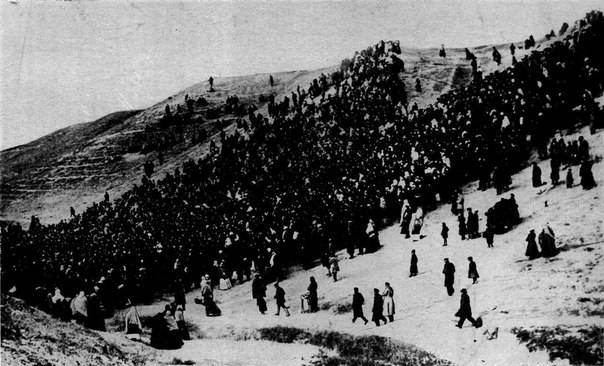
In November, 1902 in Rostov-on-Don, at the Main workshops of the Vladikavkaz railway, a grand strike began. By the way, it was mentioned by V.I. Lenin in the newspaper "Iskra" - as an example of an organized and large-scale performance of Russian workers. It is clear that the lieutenant colonel Ivanov, who was responsible for political and public security at the railway facilities in Rostov, took part in suppressing the strike.
After the suppression of the 1902 strike, the revolutionary movement in Rostov-on-Don abated somewhat, but after two and a half years, at the beginning of 1905, even more mass-working demonstrations began in Russia, covering the whole country. The main workshops of the Vladikavkaz railway did not stand aside. 15 July 1905 of the year, early in the morning, another strike began in the workshops. They gathered around 500 workers shouting revolutionary slogans. The excited strikers went to the locomotive depot, where they broke the glass, but they could not break into the room. Then the crowd rushed along the station platform to the 3 class waiting room and the telegraph office, also with the aim of crushing it. On the way of the strikers, Lieutenant Colonel Ivanov headed a squad of 10 gendarme non-commissioned officers, 1 police officer of the 1 police station of the Rostov police and 4 police officers. The workers began to throw bolts and nuts at the gendarmes, after which the lieutenant colonel gave the command “Checkers out!”. The strikers were forced to retreat. Then a crowd of workers tried to head for Don Bridge to break the alarm there. And again, Lieutenant Colonel Ivanov appeared on the way - this time with 20 gendarme non-commissioned officers armed with sabers. During the crackdown, five workshops were injured, one of whom later died from his injuries.
The harsh actions of the railway gendarmes during the dispersal of the unrest caused sharp discontent of the revolutionaries by Lieutenant Colonel Ivanov himself. The very next day, someone shouted to Ivanov, who was passing by the forge shop of the workshops, on official business, someone shouted “We will kill all the same!”. The lieutenant colonel began to receive anonymous threatening letters - they said that he was sentenced to death for the events of July 15. But he did not pay much attention to them. He did not heed the report of the policeman Georgy Litvinov. The guard of order reported that passing by the wine shop, he heard three workers discussing that they should avenge the crackdown on the July demonstration at the station. The policeman demanded an explanation, but the workers said that they were only sharing with each other the rumors that all the Main Railway Workshops are already discussing. But this did not alert the lieutenant colonel. The chief of the gendarme department continued to walk alone around the city, and did not set up security at his house. One he returned in the evening of August 7 1905.
The investigation into the murder of Lieutenant Colonel Ivanov took only a few days from the Rostov detectives. The killers "handed over" Alexander Karagodina - the same girl with whom the three guys got into conversation at the house of Ivanov. She worked as a maid for a certain Sergei Sokolovsky. The girl remembered the young people who approached her before the murder, and told the owner about them. He took the girl to the police, where Karagodina told that she had seen the alleged criminals two more times - in the crowd that had gathered right after the murder of Ivanov at his home, and a little later - at the "nalyvayka", which was located next door. There, the drunk young people sang songs - it seemed they were not afraid of anything and did not even think of hiding from the police.
Already 11 in August, the Rostov secret police received information that Lieutenant Colonel Ivanov Ilya Vasilyevich was killed by three young people - a former student of a railway school, Yakov Kovalev, a boxman, Yakov Butov, and a mechanic, Alexei Zrelov. They were all 19-20 years old. The “Trinity” was well known in the Rostov police - as politically unreliable young people who are in a revolutionary fighting squad. Jacob Butov, for example, was a student of Solomon Reisman, a famous revolutionary in Rostov, despite his twenty years of age, who was elected chairman of the Central Organizing Bureau of the Union of Railwaymen of the Vladikavkaz Railway. In the revolutionary environment of Rostov, Jacob Butov was known by the nickname "Well done". So S.N. Aizenshtark: “Yasha was like the embodiment of asceticism. Each of his free time at the factory he studied and taught. He organized a circle of workers in a cardboard factory. ”
The famous Rostov detective Yakov Blazhkov took up the search and arrest of the suspects. 13 August managed to arrest all three suspects - apart from each other. In the detention of the revolutionaries, in addition to Blazhkov, they received police officers of the Anglichenkov and Yezhov, a gendarme non-commissioned officer Shirokov, a Cossack Bykadorov. During the arrest, Yakov Kovalev tried to offer armed resistance to the police by grabbing a revolver, but he was able to be disarmed. It turned out that the former student of the railway school had a small nine-shot revolver of the “Velodog” system.
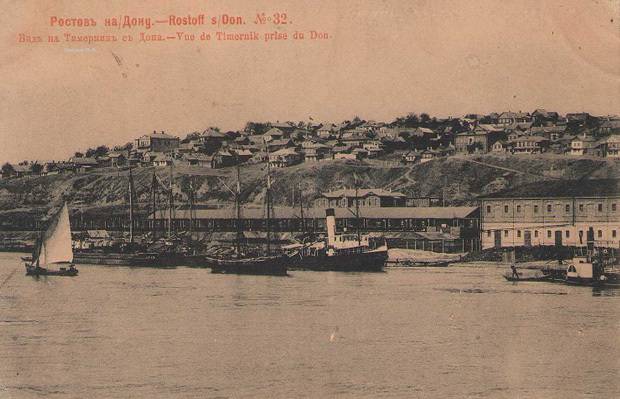
During a search on the apartments of the suspects, things were found that testified to their belonging to the revolutionary movement. Thus, Kovalev found several thousand pages of the Don Committee of the Russian Social-Democratic Labor Party, as well as typographic accessories. At home, Alexey Zrelov found four receipts for collecting donations for the needs of the Don Committee of the RSDLP. At the apartment of Jacob Butov found propaganda brochures and a card of the priest father Gapon.
After the arrest of Kovalev, Butov and Zrelova, investigative measures began. First, 14 of August, they were shown by Praskovye Vasilchikova - this girl was standing at the time of the murder near a seed shopwoman, who was sitting next to the entrance of Ivanov's house, and saw a certain young man shoot at a man. In Yakov Kovalev, Vasilchikova immediately identified the gunman. The next day, Kovaleva identified Alexander Karagodin. The examination revealed that the bullets that killed Lieutenant Colonel Ivanov fit the revolver seized from Yakov Kovalev during the arrest.
Sami Butov, Kovalev and Zrelov stubbornly did not recognize their guilt, but were confused in the testimony. So, Yakov Butov and Yakov Kovalev stated that that evening, when Lieutenant Colonel Ivanov was killed, they walked in the city garden (now - Maksim Gorky Recreation Park), and then, around 9 in the evening, a large company went to the river Don go boating and returned home only late at night. According to Butov and Kovalev, Alexey Zrelov was with them. But Zrelov himself said that on the day of the murder, he walked from the morning until 10 in the evening to the Tepernitsa settlement (the main working village of the then Rostov, where most of the workers of the Main Railway Workshops lived) with a girl, Anastasia Butakina. In addition, Zrelov said that he did not know either Yakov Kovalev or Yakov Butov. These testimonies, as we see, came into clear contradiction with what Butov and Kovalev told. The girl Anastasia Butakina was called to the police - the same one that Zrelov allegedly walked around Temernik all day. But Nastya did not confirm the testimony of Zrelova and, moreover, stated that she did not personally know Zrelov. After that, Alexei Zrelov changed his testimony and said that he actually walked with Butov and Kovalev in the city garden, and then went with them to go boating.
The girl, Elena Medvedeva, was interviewed. She walked on the evening of August 7 in the city garden, along with her friends, Stashkova and Kozyreva. She said that she had really seen Kovalev, Butov and Zrelova in the city garden - they invited three girls to ride a boat. It was at eight o'clock in the evening. Then from the city garden the three young men disappeared. The guys appeared in the city garden, according to Medvedeva, after nine in the evening. This was confirmed by other witnesses who were in the city garden that evening. That is, the young people had enough time to walk to Bratsky Lane, which is a five-minute walk from the city garden, and then, having made their plans, to return home.
The murder of a gendarme lieutenant colonel could be followed by a very serious punishment. Most of all, Yakov Kovalev should have been wary — after all, he, a former student of the railway school, was identified as the direct killer of Ilya Ivanov. But on January 24, 1906, after filing the cell grid, Yakov Kovalev escaped from Donetsk prison. Could not catch him. The trial of the murder of lieutenant colonel of gendarmerie Ivanov Ilya Vasilyevich was held on September 23 1906 in the Novocherkassk Court of Justice. The prosecution fell apart before our eyes - the defense had built a very good line: it was not possible to prove Butov and Zrelov’s involvement in the murder of Ivanov. Yakov Kovalev shot and it was him who should have been tried as a lieutenant colonel's murderer. But Kovalev fled and did not appear before the court. But Butov and Zrelov only stood next to him and saw him shoot Ivanov. But to stand next to and be an accomplice - a little different things. After a lengthy meeting, the court chamber decided to acquit the defendants Yakov Butov and Alexei Zrelov (Yakov Kovalev, as is well known, escaped nine months before the trial from prison).
The fate of Yakov Kovalev is unknown. As for Alexey Zrelov, his name came up in connection with the events of the December uprising 1905 of the year - it was in the house of Zrelov (this is a stone house at Vagulevskaya St., 33) the headquarters of the revolutionary fighting squad was located. In 1926, a two-page article by A. Zrelov, The Murder of Lieutenant Colonel Ivanov, was published in the edition of 1905 in Rostov-on-Don. Preserved information about the fate of Jacob Butov. In 1907 or 1908, for taking part in revolutionary speeches, he was arrested again and sentenced to exile in Eastern Siberia. There, Butov spent about ten years and was released only after the February Revolution - with debilitated tuberculosis health.
Materials used: Sidorov V. Encyclopedia of the old Rostov and Nakhichevan-on-Don. Rostov-on-Don, 1995; Shvetsov S.D. In the old Rostov. Rostov-on-Don, 1971.
- P P 'SЊSЏ RџRѕR "RѕRЅSЃRєRёR№
- //rslovar.com/, //flackelf.livejournal.com/
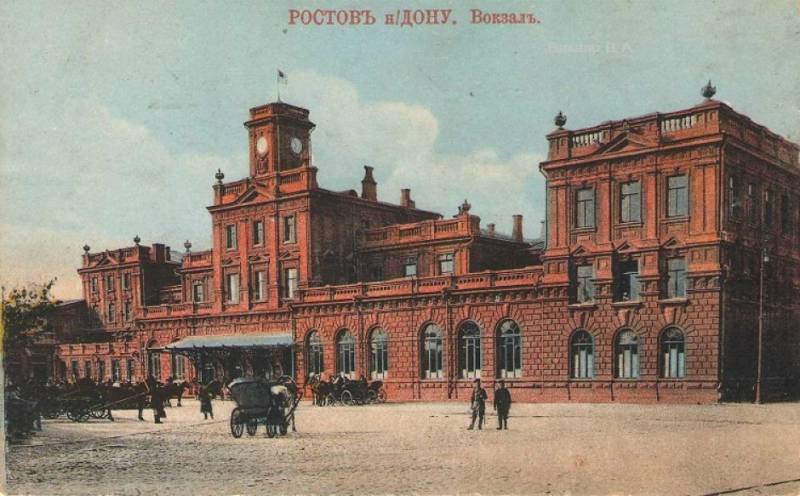
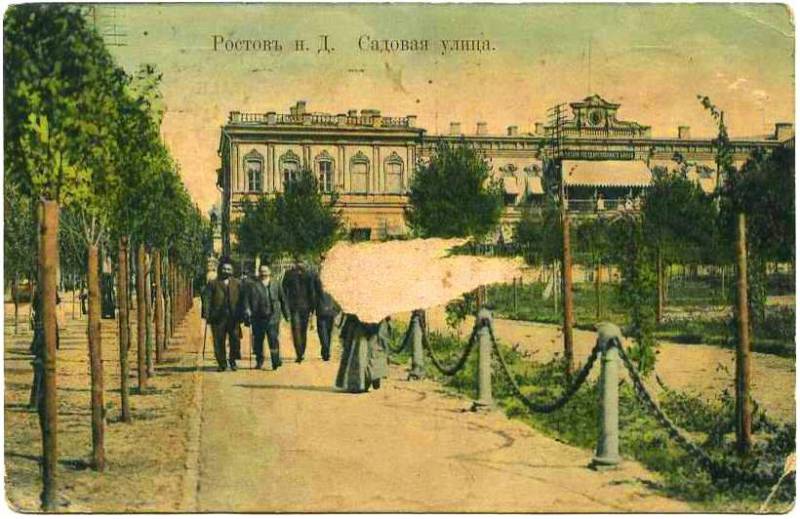
Information